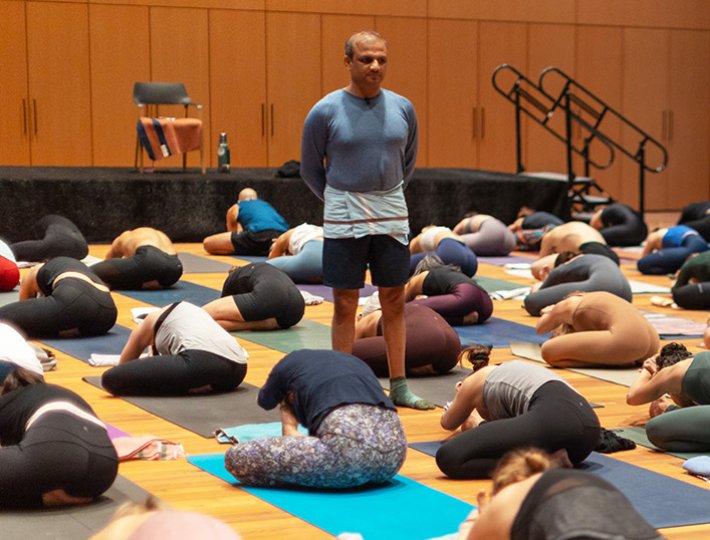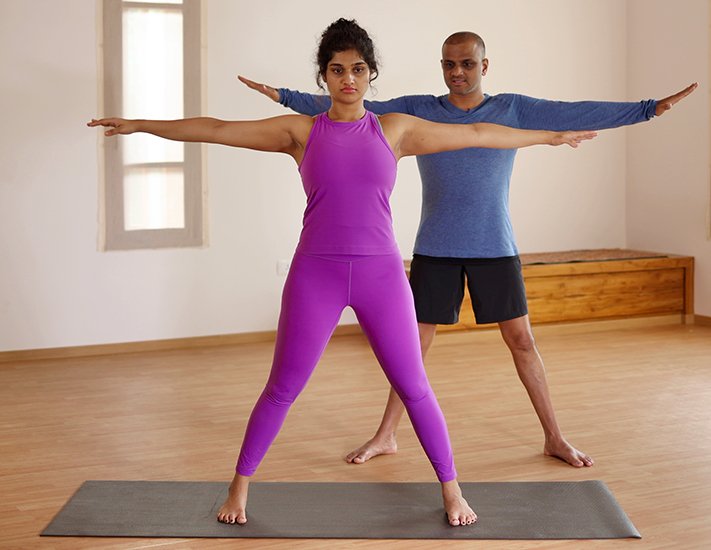In the discussion of how to reap results from a fitness and healthy eating program, the old adage is, “You can’t out-exercise a bad diet.” Generally this makes sense, seeing as it’s possible to erase 60 minutes of hard work at the gym in one sitting at a typical restaurant or fast-food chain. When you consistently choose indulgent foods high in fat and calories, it can become almost impossible to make any measurable progress in reaching your goals, no matter how often you work out.
But taken to the other extreme, physically active people who don’t eat enough experience a number of drawbacks, too.
“Your fueling—or how much you eat—needs to match your activity level,” says Marcey Robinson, R.D., a sports nutritionist and exercise physiologist. “If you eat a lot of vegetables, for example, you’re getting the minerals and vitamins your body needs to support good health, but you may not be getting enough overall calories, carbohydrates, protein, and fats to sustain your active lifestyle.”
A healthy diet rich in fibrous vegetables and fruits is advisable for good health, but in some cases it can be hard to eat enough of these foods to meet your daily energy needs, especially if you work out daily, says Robinson. For example, a salad may fill you up, but because vegetables are low in calories, you’d have to eat a lot more of it to reach the 400 or 500 calories you may need to fuel your body until its next meal. As the body performs the muscle- and tissue-repair processes that take place after exercise, an insufficient lunch can trigger carbohydrate cravings that lead to binge eating.
Robinson recommends boosting a salad with a serving of healthy protein such as baked chicken breast or fish, garbanzo beans, unprocessed tofu or tempeh, and healthy fats from avocados and nuts, along with a half-cup of slow-burning carbohydrates such as brown rice, quinoa, or two slices whole-grain bread with nut butter.
Related: 30 Lunch and Dinner Bowls Bursting with Flavor
Adding a mid-morning and mid-afternoon snack of veggies and hummus or avocado toast can help squash sugar cravings and provide sustained energy throughout the day, which will set you up well for evening activities and healthy choices at dinner.
Also, when you eat is just as important as what you eat.
Start the day with a low-burning breakfast even if you’re a morning exerciser. The body goes into fasting mode at night and by morning needs food to replenish the blood-glycogen stores that fuel your morning workout. Hitting the gym or running a few miles before breakfast stresses an already-starving body, and your workout will suffer.
Opt for breakfast foods that include a balance of carbohydrates, lean proteins, and fats, such as oatmeal with flaxseed oil, raisins, and almond milk rather than sugar-laden processed cereal that causes a blood-sugar spike and subsequent drop in energy.
How do you know if you’re eating enough to fuel your active lifestyle? Start by calculating your body’s actual caloric needs. You can do this with the help of a tracking app, such as MyFitnessPal, or the Institute of Medicine’s general recommendations based on gender, age, and activity level. It’s also important to tune in to what your body is telling you.
The following seven signs may be indications that that you need to consume more calories.
1. Post-workout fatigue.
Feel drowsy after your workout? Resist a short-lived energy boost from caffeine or sweets and instead focus on healthy refueling. Eat within the “recovery window,” which is within 30 minutes of completing the activity. This snack should include carbohydrates and protein, both of which are essential to muscle-building and recovery processes.
2. Low immunity.
A negative energy balance compromises the function of key bodily systems, including the immune system. Without energy to fight off bugs, you risk falling ill to viruses that come your way.
3. Recurring sports injuries and soreness.
The process by which you build stronger muscles and improve aerobic fitness begins with breaking down tissues. Eat enough to support the post-workout healing processes and you’ll prevent injury while building a stronger, fitter body.
4. Waning motivation.
Exercise makes you feel good, so if you struggle to do activities you normally enjoy, take a close look at your eating habits. Not eating enough can affect mood and mental function, which makes it harder to motivate to exercise.
5. Disrupted sleep.
When burning more calories than you’re taking in, the body remains in a state of stress, which disturbs your natural sleep cycle. Waking at 2 or 3 a.m. and having trouble falling back to sleep? Eating more throughout the day may help.
6. Weight gain.
Though it seems backward, not eating enough for your activity level makes you gain weight. A nutritionally stressed body goes into preservation mode by shifting hormones and slowing metabolism in order to hold onto fat stores.
7. Irregular or ceased menstrual cycle.
When your body lacks the energy to menstruate monthly or at all for an extended period of time, you’re at risk for more severe conditions and should seek help from a doctor or a dietitian.











Comments (0)